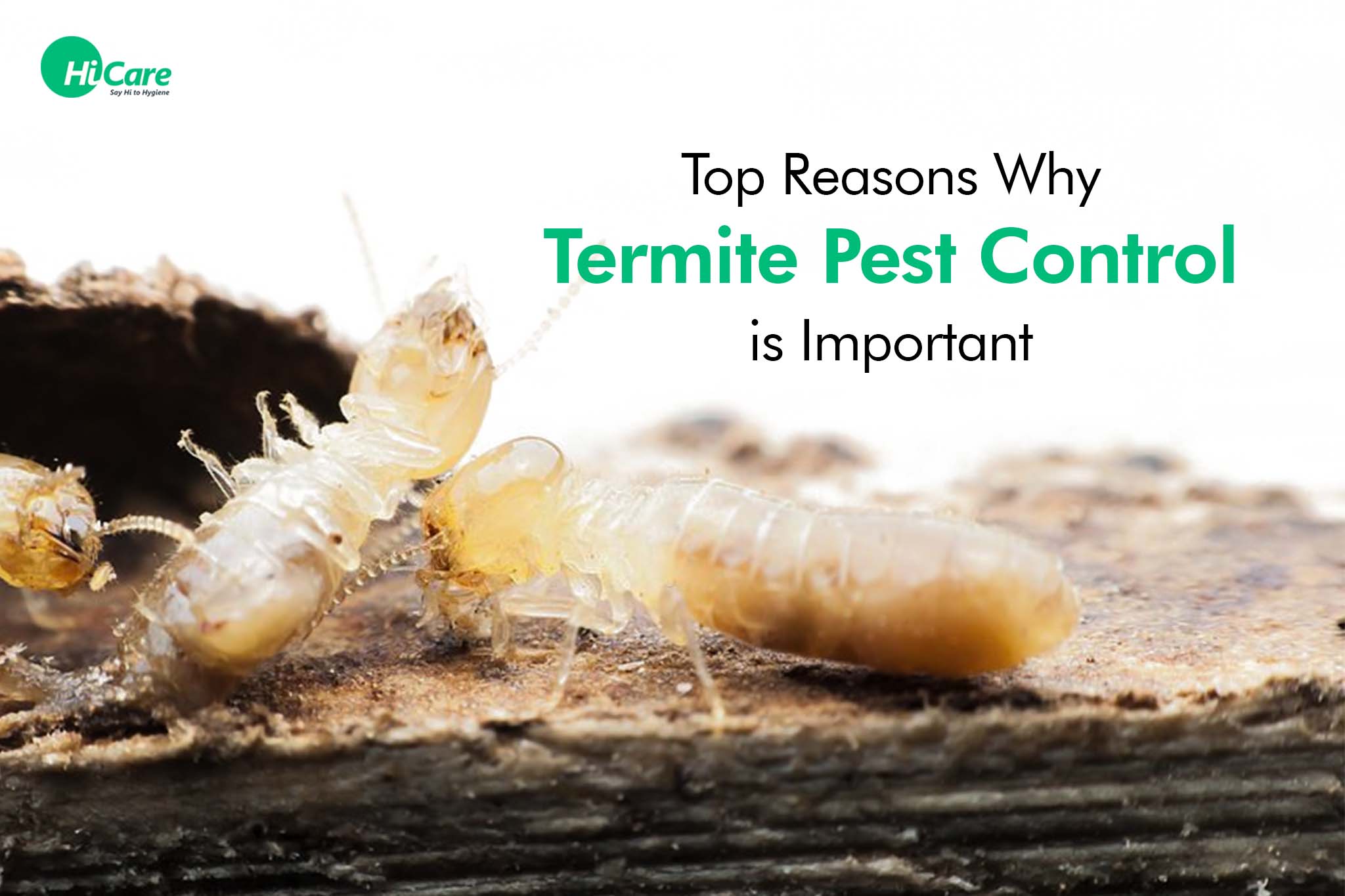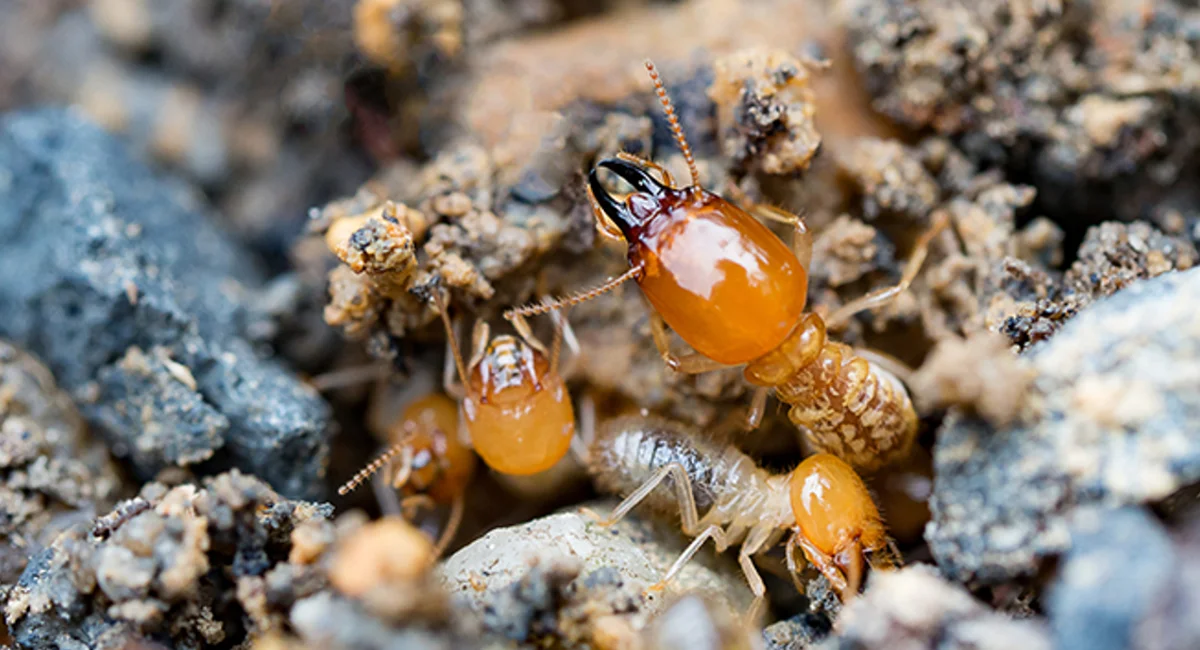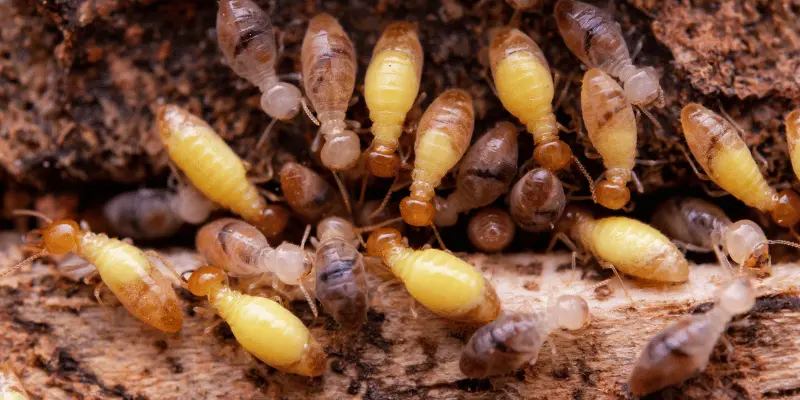Comprehensive Termite Control: Protect Your Building with Specialist Services
Comprehensive Termite Control: Protect Your Building with Specialist Services
Blog Article
Environmental Effect of Bug Control: Balancing Performance With Sustainability
The ecological effect of pest control is a crucial problem that requires a delicate equilibrium in between accomplishing effectiveness in making certain and managing parasites sustainability of our ecological communities. From the use of unsafe chemicals that permeate right into our dirt and water to the unexpected repercussions on non-target species, the repercussions of conventional pest control techniques are far-reaching.
Harmful Chemicals in Parasite Control
The application of damaging chemicals in pest control postures considerable ecological and health and wellness dangers that call for mindful factor to consider and reduction approaches. Pesticides, herbicides, and insecticides are commonly used to get rid of bugs, yet their widespread application can cause unexpected repercussions. These chemicals can contaminate dirt, water sources, and the air, impacting not only the targeted parasites yet also helpful insects, wild animals, and human beings.

To resolve these risks, incorporated insect administration (IPM) techniques are being advertised as a more sustainable choice. IPM includes a combination of approaches such as biological control, environment manipulation, and the targeted use pesticides as a last resource (ant control hickory nc). By taking on a holistic approach to pest control, we can decrease the ecological and health influences related to harmful chemicals while effectively taking care of pest populaces
Effect On Non-Target Variety
Considering the unintentional effects of pest control methods, the effect on non-target varieties is an important aspect that needs detailed evaluation. While insect control actions intend to target particular parasites, various other microorganisms in the ecological community may be accidentally impacted. Non-target types, including helpful pests, birds, animals, and also plants, can experience direct or indirect harm from pesticide applications or biological control methods.
Pesticides developed to fight a certain insect bug may harm pollinators like bees or all-natural killers such as ladybugs. Biological control agents, if not species-specific, can posture risks to unintentional targets, disrupting the ecological equilibrium.
To minimize the influence on non-target types, incorporated pest monitoring (IPM) methods that emphasize an all natural method to pest control are advised. These methods prioritize making use of eco friendly practices, decreasing damage to valuable organisms while successfully handling pest populations. Performing extensive danger evaluations and monitoring the end results of parasite control efforts are vital action in securing non-target varieties and advertising overall ecosystem health.
Dirt and Water Contamination
Unintended environmental consequences of pest control approaches prolong past influencing non-target species, with significant ramifications for soil and water contamination. Pesticides, herbicides, and chemical fertilizers used in parasite control can seep into the dirt and pollute groundwater, posturing a risk to both marine and earthbound ecological communities. Soil contamination can interfere with the equilibrium of bacteria crucial for nutrition biking and plant development, leading to lowered dirt fertility and productivity. Moreover, these chemicals can continue in the environment for extended durations, collecting in the soil and possibly going into the food chain.
Water contamination is one more essential issue connected with insect control techniques. Drainage from farming areas treated with chemicals can bring these chemicals into nearby water bodies, impacting marine microorganisms and water quality. Contaminants in water resources can have far-reaching effects, impacting not only aquatic life ant control kingsmountain nc however likewise human health via the usage of polluted water or aquatic organisms. To reduce dirt and water contamination from insect control tasks, incorporated pest monitoring approaches that focus on sustainability and reduce chemical inputs are critical.
Air Contamination From Chemical Usage
Direct exposure to airborne chemicals throughout farming applications poses a considerable problem for air pollution control steps. Furthermore, pesticide drift, where chemicals are brought by the wind to unplanned locations, can lead to the contamination of nearby environments and water bodies.

Strategies for Lasting Pest Control
In the realm of agricultural practices, implementing lasting bug control strategies is extremely important for keeping eco-friendly balance and guarding plant yields. Lasting parasite control highlights making use of eco-friendly approaches to manage parasite populations efficiently while decreasing injury to non-target organisms and communities. Integrated Bug Administration (IPM) is a widely embraced strategy that incorporates organic, cultural, physical, and chemical control methods to attain long-lasting pest monitoring solutions.
One key technique in sustainable pest control is promoting biodiversity within agroecosystems. By boosting natural opponents of insects, such as parasitoids and predators, farmers can reduce the demand for synthetic pesticides. Crop turning and diversification are additionally effective strategies to interrupt pest life cycles and produce much less positive conditions for pests to grow. Additionally, making use of pest-resistant crop ranges and utilizing methods like catch chopping can help in reducing parasite stress without counting heavily on chemical treatments. Eventually, by incorporating these lasting parasite control approaches, farmers can accomplish an equilibrium in between pest administration effectiveness and ecological stewardship.
Final Thought
In final thought, the ecological effect of pest control approaches need to be thoroughly thought about to balance efficiency with sustainability. Dangerous chemicals used in insect control can bring about soil and water contamination, air contamination, and harm non-target types - ant control. It is vital to implement sustainable bug control approaches to minimize these unfavorable impacts on the setting and advertise a healthier community for future generations
By embracing an all natural approach to pest control, we can reduce the ecological and wellness impacts connected with unsafe chemicals while efficiently taking care of pest populations.

To mitigate the air pollution caused by pesticide use, it is vital to adopt incorporated bug administration techniques that prioritize the usage of non-chemical bug control techniques, such as crop turning, natural killers, and resistant plant varieties. Sustainable parasite control stresses the usage of ecologically pleasant approaches to take care of bug populations efficiently while minimizing injury to non-target microorganisms and ecological communities. Integrated Pest Management (IPM) is a widely embraced method that incorporates biological, social, physical, and chemical control methods to attain long-lasting pest monitoring remedies.
Report this page